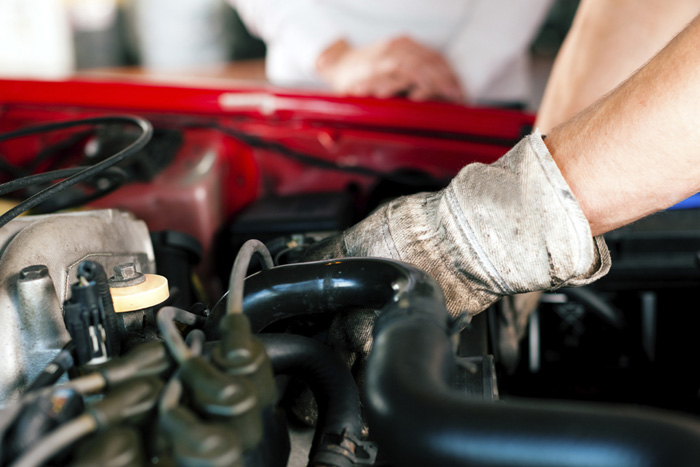Even in the cooler temps of fall and winter, an overheated car can stop you in your tracks. When a vehicle overheats, the engine runs too hot and can potentially damage your vehicle or even destroy your engine.
1. Turn the engine off.
“If your car overheats on the road, the first thing you need to do is turn it off, open the hood and let it cool off on its own.”
2. Never take off the radiator cap.
“You definitely don’t want to uncap the radiator system or the water system. It will be under high pressure and will blow off and burn you if you try to do that.”
3. Let the engine cool off before you do anything.
“Normally your car will have warning lights and a pressure relief valve. If your engine starts to overheat, it will give you plenty of warning before you could actually damage anything. You really can’t address any of the problems though until the engine cools off on its own.”
4. Refill antifreeze / coolant.
“In the race car, the rules say we have to use water, but in your car you should use antifreeze. Once everything cools back down to roughly room temperature, open the system up and fill it back up with new antifreeze.”
5. Check hoses for leaks, blockages or bursts.
“Inspect to see if you have a leak or something that caused your engine to overheat, because normally, the car doesn’t just overheat on its own. Chances are you either have a leak in the coolant system, or a thermostat went bad, which can happen a lot. On older cars it was much more common, but on newer cars you sometimes need to have a professional technician take a look. Regardless of the age of your vehicle, the number one rule is to just let your engine cool off. ”
6. Carefully monitor the temperature gauge.
“If the gauge crosses over to hot, pull over to a safe location and turn the engine off.”
7. Keep a safety kit in your car.
“Have a kit that contains coolant, a tool kit, a blanket, a working flashlight, non-perishable foods and water in the car at all times, just in case.”

